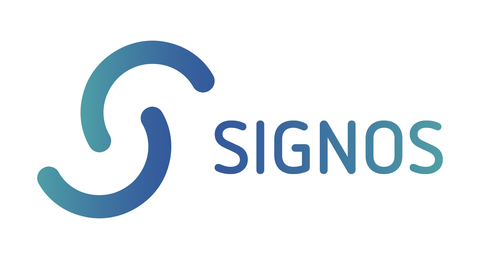Signos Launches a First-of-its-Kind 20,000 Person Study on CGM Use Paired With an AI-Powered Health App to Unlock the Role of Glucose Responses in Health Outcomes for All
Signos Launches a First-of-its-Kind 20,000 Person Study on CGM Use Paired With an AI-Powered Health App to Unlock the Role of Glucose Responses in Health Outcomes for All
SAN FRANCISCO--(BUSINESS WIRE)--Today, Signos announced a first-of-its-kind 20,000 person study on the effects of combining real-time continuous glucose monitor (CGM) use and a mobile health app to improve health outcomes and weight management. Signos provides participants with a wearable Dexcom CGM and an AI-enhanced app, offering continuous glucose data and personalized recommendations based on an individual’s glucose responses to food, exercise, sleep, and stress.
“We’re on the cutting edge of understanding glucose responses in people without diabetes and how personalized behavior modification can help change lives,” said Sharam Fouladgar-Mercer, CEO of Signos. “Our mission is to help people stop the progression from metabolic dysfunction to Type 2 diabetes, something that affects roughly 1 in 3 adults in the U.S.”
Designed and conducted by Signos, the study tests a mobile technology-based behavioral intervention for weight management. It follows a research protocol approved by the WIRB-Copernicus Group Institutional Review Board (IRB) to ensure study participants use the Signos platform in a safe and transparent way. WIRB-Copernicus Group IRB is the world's leading provider of solutions that measurably improve the quality and efficiency of clinical research.
A study of this size has never been conducted to examine the use of CGMs by people without diabetes. Signos is the only CGM option for this population that is utilizing the Dexcom G6. Dexcom is the global leader in real-time CGM and for the first time, has made an investment in the health, wellness, and weight management space through its partnership with Signos.
“We are excited to see this extension of CGM use to better understand how our technology can help people before the onset of chronic conditions, including diabetes,” said Steve Pacelli, executive vice president and managing director, Dexcom Ventures. “This study has the potential to lay the groundwork for meaningful change in metabolic health and disease prevention.”
As participants use the Signos mobile app, they will receive personalized recommendations to help them reach their health goals. The team overseeing the study will receive data directly from the app, which will be stored confidentially and in compliance with the Health Insurance Portability and Accountability Act (HIPAA). To qualify, all participants must be over the age of 18 and complete a medical screening to determine they do not have diabetes.
“Our health system is reactive, not proactive. Launching this study helps us better understand and reverse the effects of glucose dysregulation before negative health outcomes result,” said Dr. Stephanie Kim, IRB principal investigator and assistant clinical professor of medicine at the UCSF Medical Center.
To try Signos and participate in the study, sign up here.
About Signos
Launched in 2018, Signos combines continuous glucose information with an AI-enhanced app to offer revolutionary continuous data and recommendations designed to drive healthy and sustained weight loss. With over 75% of the American population overweight or obese, Signos provides a new way for people to act on their body’s unique response to what they eat to lose weight and kickstart a healthier life. Signos was founded by a team that brings deep expertise in applying data and AI to build engaging experiences with technology to improve health outcomes. To learn more, visit http://www.signos.com.
Contacts
Libby Dugan | libby@leapgrow.co
